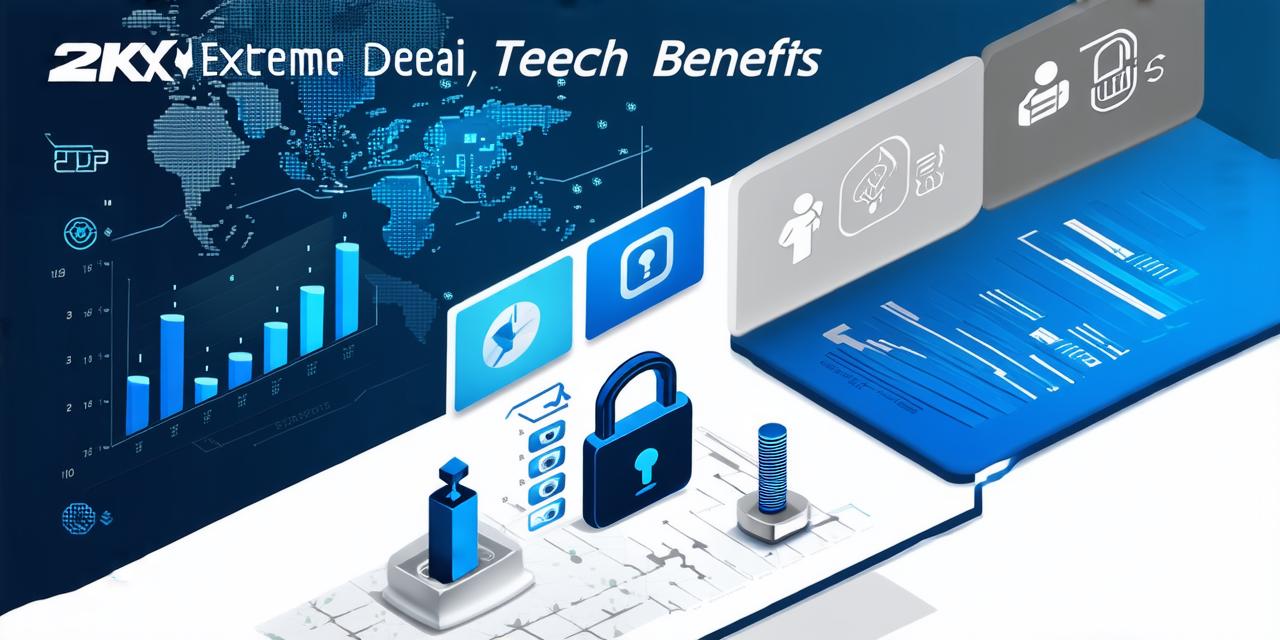Blockchain technology is gaining immense popularity worldwide. The decentralized and secure nature of blockchain makes it an ideal solution for various industries. It is a distributed ledger that records transactions in a transparent and immutable manner, making it an attractive option for businesses looking to improve their security and efficiency.
What is Blockchain?
Blockchain technology allows multiple parties to share data securely without the need for a central authority. It consists of a chain of blocks that contains information about transactions and are linked together using cryptography. Each block in the chain contains a unique code, called a hash, which ensures the integrity of the data stored in it. The decentralized nature of blockchain makes it resistant to tampering, hacking, and centralized control.
Benefits of Blockchain for Developers
The benefits of blockchain technology are numerous, and they can be applied to various industries. Here are some of the reasons why blockchain is good and how developers can benefit from it:
-
Security and Privacy
- One of the primary benefits of blockchain is its security and privacy features.
- Blockchain uses cryptography to secure transactions and prevent unauthorized access. Each transaction in a blockchain network is encrypted, ensuring that only authorized parties can view or modify it.
-
Decentralization
- Another benefit of blockchain technology is its decentralized nature.
- In a blockchain network, there is no central authority controlling the network, making it resistant to tampering, hacking, and centralized control.
-
Transparency and Immutability
- Blockchain technology provides transparency and immutability of data stored in it.
- Each transaction in a blockchain network is visible to all participants in the network, ensuring that there is no manipulation or tampering of the data.
-
Cost Reduction
- Blockchain technology can help businesses reduce costs by eliminating intermediaries and reducing the need for manual processes.
-
Improved Efficiency
- Blockchain technology can help businesses improve their efficiency by enabling faster and more secure transactions.
- The decentralized nature of blockchain ensures that transactions are processed quickly and efficiently, without the need for intermediaries.
For example, the Bitcoin blockchain uses cryptography to secure transactions and prevent fraud. The use of public-key cryptography ensures that each transaction is verified by multiple nodes in the network, preventing double-spending and other forms of fraud.
For example, the Ethereum blockchain uses smart contracts to automate complex processes, such as supply chain management and voting systems. The decentralized nature of Ethereum ensures that these processes are secure and tamper-proof, making it an attractive option for businesses looking to improve their efficiency and security.
For example, the Walmart blockchain uses blockchain technology to track the movement of food products from farm to shelf. The use of a distributed ledger ensures that all participants in the network have access to the same data, ensuring transparency and accountability in the supply chain.
For example, the Maersk blockchain uses smart contracts to automate trade finance processes, such as invoicing and payment processing. The use of a distributed ledger ensures that all parties involved in a transaction have access to the same data, reducing the need for manual processes and increasing efficiency.
For example, the IBM Food Trust uses blockchain technology to enable food companies to track the movement of food products in real-time. The use of a distributed ledger ensures that all parties involved in the supply chain have access to the same data, enabling faster and more efficient processes.
Case Studies: Real-Life Examples of Blockchain Technology in Action
Blockchain technology has been successfully implemented in various industries worldwide. Here are some real-life examples of blockchain technology in action:
-
IBM’s Food Trust
- IBM’s Food Trust is a blockchain-based solution that enables food companies to track the movement of food products from farm to shelf.
- The use of blockchain technology ensures transparency and accountability in the supply chain, reducing the risk of foodborne illnesses and improving consumer trust.
-
Walmart’s Blockchain Initiative
- Walmart’s blockchain initiative uses blockchain technology to track the movement of food products from farm to shelf.
- The use of a distributed ledger ensures that all parties involved in the supply chain have access to the same data, enabling faster and more efficient processes.
-
The Bitcoin Blockchain
- The Bitcoin blockchain is one of the most well-known blockchain networks worldwide.
- It uses cryptography to secure transactions and prevent fraud, making it an ideal solution for industries like finance, healthcare, and retail.
-
Ethereum’s Smart Contracts
- Ethereum’s smart contracts are self-executing contracts with the terms of the agreement between buyer and seller being directly written into lines of code.
- They can be used to automate complex processes like supply chain management and voting systems.
-
The Hyperledger Fabric
- The Hyperledger Fabric is a blockchain framework that enables businesses to create their own private blockchains.
- It uses smart contracts to automate complex processes, enabling businesses to improve their efficiency and security.

Note: ……
Note: ……
Note: ……
Note: ……
Note: ……
Conclusion: Why Blockchain is Good for Developers
Blockchain technology has numerous benefits that can be applied to various industries worldwide. It provides transparency, immutability, security, and privacy features, making it an ideal solution for businesses looking to improve their security and efficiency. The decentralized nature of blockchain ensures that there is no central authority controlling the network, making it resistant to tampering, hacking, and centralized control.
For developers, blockchain technology presents a unique opportunity to create innovative solutions that can revolutionize various industries. The use of smart contracts, for example, can automate complex processes like supply chain management and voting systems. The decentralized nature of blockchain ensures that these processes are secure and tamper-proof, making it an attractive option for businesses looking to improve their efficiency and security.
In conclusion, blockchain technology is good because it offers numerous benefits that can be applied to various industries worldwide. It provides transparency, immutability, security, and privacy features, making it an ideal solution for businesses looking to improve their security and efficiency. For developers, blockchain technology presents a unique opportunity to create innovative solutions that can revolutionize various industries.
